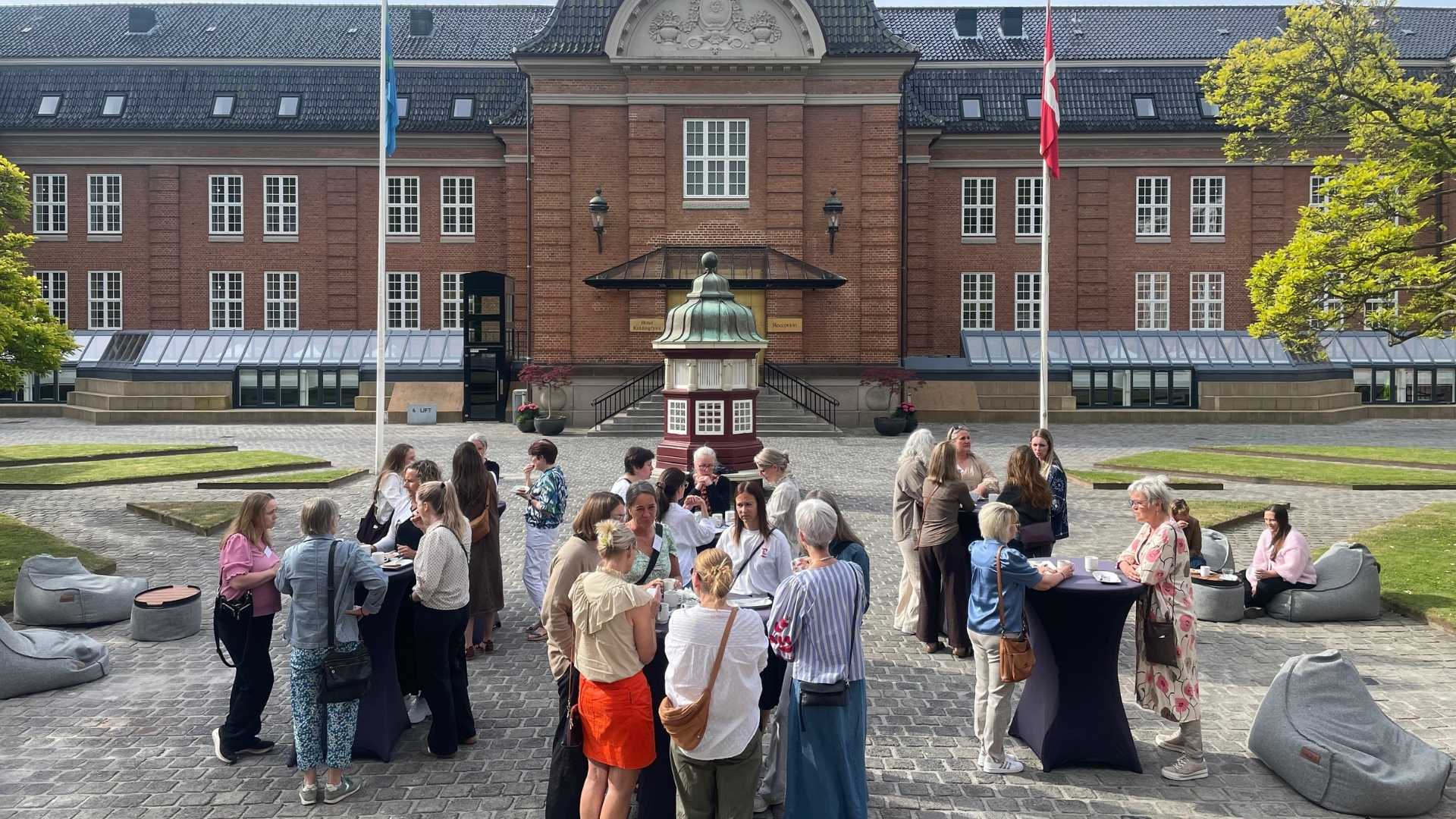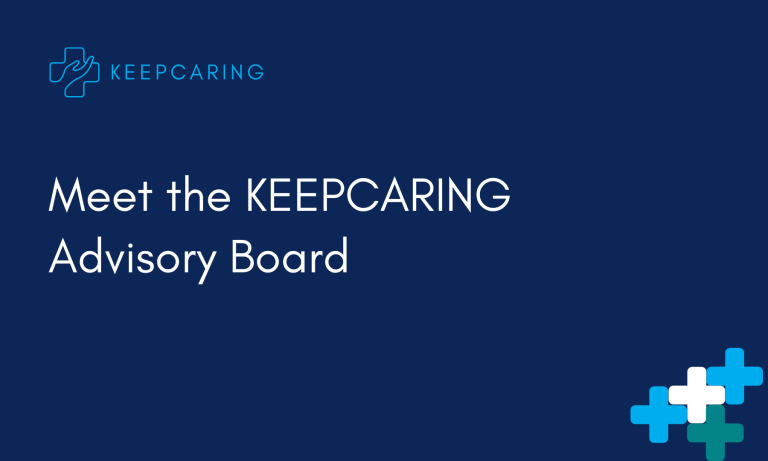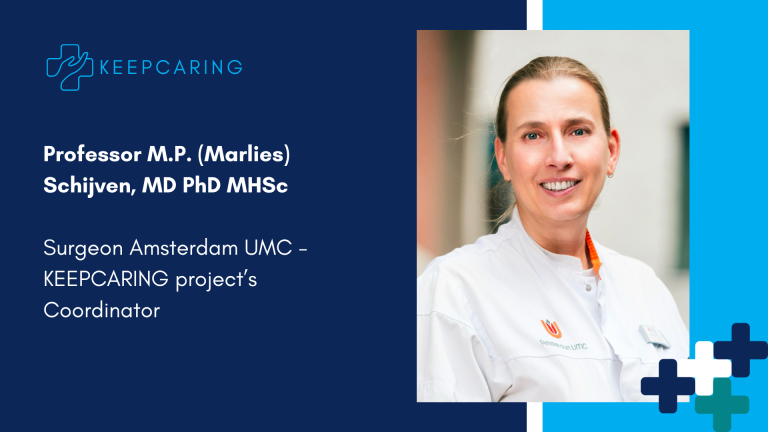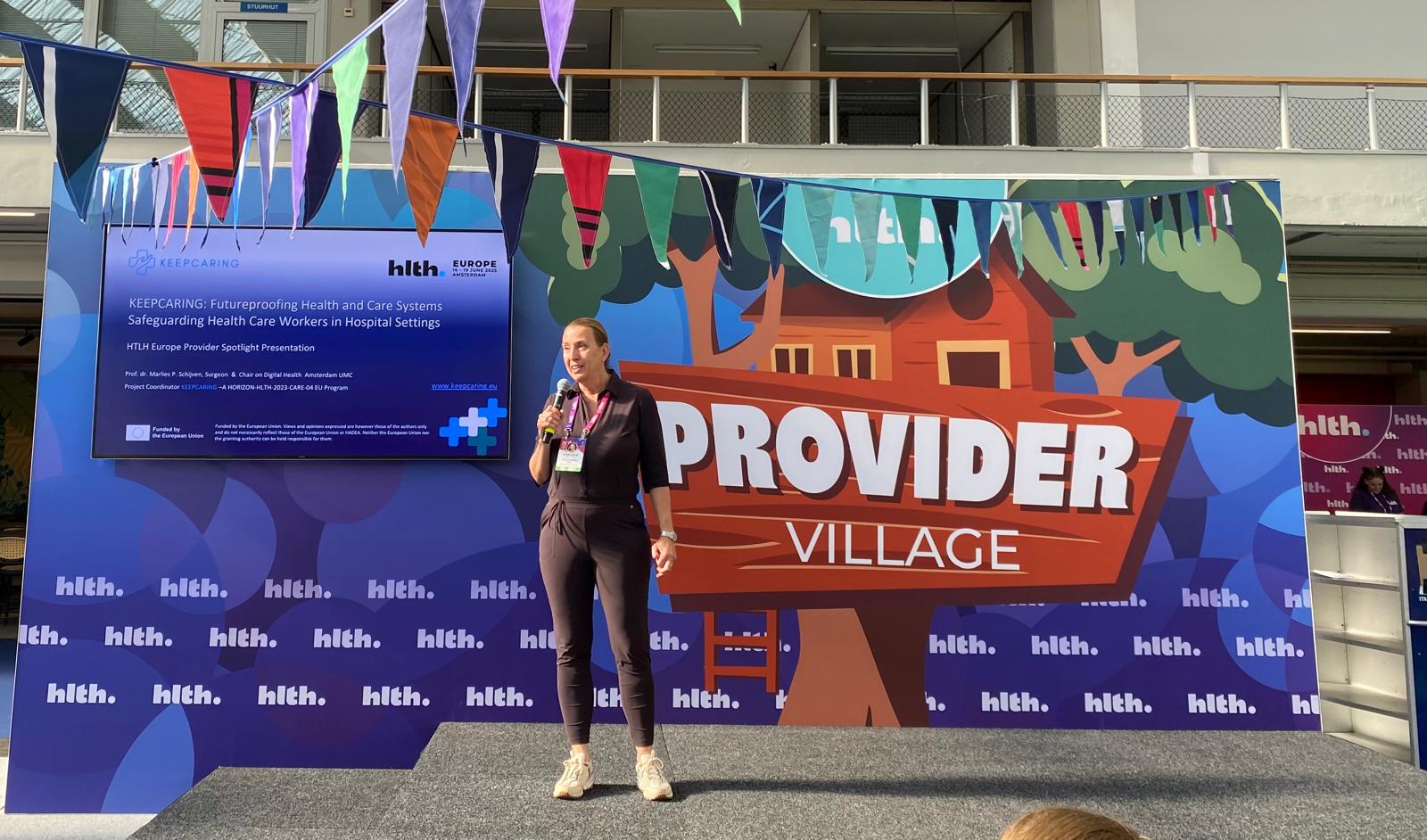KEEPCARING showcased across Denmark

National Events highlight the need of wellbeing and resilience in healthcare
Author
Natalia Allegretti, Senior Innovation Projects Manager at Global Health Connector
Across Denmark, healthcare professionals have taken an active role in promoting the KEEPCARING project through a series of national conferences and hospital-based events held between 2024 and 2025. These initiatives have helped raise awareness about burnout prevention, stress management, and resilience-building in healthcare, while giving visibility to the project’s objectives among diverse professional communities.
By engaging both nursing and medical audiences, these activities have contributed to building a strong national dialogue around wellbeing in hospitals, a core mission of KEEPCARING.
Connecting science and practice
At the heart of KEEPCARING’s visibility efforts in Denmark Dr. Jeanett Strandbygaard, MD, PhD, Associate Professor, member of the KEEPCARING Editorial Board and co-lead of Work Package 3 – focused on developing and testing practical interventions to reduce job stress and strengthen resilience among healthcare professionals – has expanded the project’s reach among doctors, researchers, and hospital management.
Between 2024 and 2025, Dr. Strandbygaard delivered four lectures across major Danish hospitals, engaging a total of approximately 165 professionals from various specialisations, including obstetrics, gynaecology, fertility, and fetal medicine, as well as surgical departments and management teams.
Her first two lectures, delivered at Rigshospitalet, the University Hospital of Copenhagen, in September and October 2024, introduced the overall framework of KEEPCARING and the structure of its clinical studies, while also encouraging department leaders to consider participation in future trials. In March 2025, she returned to address doctors and researchers at the same institution, presenting new insights on stress, burnout, and toxic leadership, reflecting the project’s ongoing research into psychosocial risk factors in healthcare workplaces.
Finally, in April 2025, at Roskilde University Hospital, she engaged a multidisciplinary audience of around 40 nurses, midwives, doctors, and researchers, offering a comprehensive overview of KEEPCARING’s research on resilience and leadership dynamics.
Through these scientific engagements, Dr. Strandbygaard successfully created a bridge between clinical research and organisational practice, sparking important discussions on how evidence-based interventions can foster resilience across healthcare teams. Her activities have been key to establishing KEEPCARING as a credible and relevant initiative within Denmark’s medical and academic landscape.

View of Rigshospitalet – University Hospital of Copenhagen
National conferences for Operating Room Nurses
Complementing the scientific engagements, Johanne S. Hartmann has been instrumental in spreading KEEPCARING’s message among Denmark’s nursing community.
In collaboration with the Danish Operating Room Nurse Association (FSOP), Johanne contributed to two major national conferences that brought together more than 220 operating room nurses from across the country. These events created valuable spaces for dialogue on stress, burnout, and resilience in surgical environments, while connecting European research with the everyday realities of frontline healthcare.
During the National Fall Conference of Operating Room Nurses, held on 28–29 October 2024, Johanne introduced KEEPCARING to a national audience of over 100 participants. Her talk highlighted the project’s mission to improve wellbeing and resilience among healthcare professionals, with a particular focus on the challenges faced by nurses in high-intensity operating theatre environments.
The following year, at the National Spring Conference on 19 May 2025, she presented KEEPCARING’s ongoing research on stress and resilience and invited attendees to participate in the project’s questionnaire on burnout and coping mechanisms. The session encouraged open exchange, showing how nurses’ first-hand experiences can directly contribute to building effective, evidence-based interventions.
These national conferences underscored the crucial role of professional associations in amplifying European research and ensuring that the voices of practitioners shape the development of future resilience strategies.
Follow the Danish Operating Room Nurse Association on LinkedIn to learn more about their activities and collaboration with KEEPCARING.
Translating research into action
In addition to her contributions at national conferences, Johanne organised two internal seminars at Rigshospitalet – The Heart Center, engaging around 80 healthcare professionals, including operating room and anaesthesia nurses.
The first seminar, held in March 2025, introduced KEEPCARING’s research on stress, burnout, and resilience in healthcare, encouraging participants to share their experiences and contribute to the project’s questionnaire.
The second, in September 2025, focused on practical strategies for preventing burnout and building team resilience in high-demand surgical environments.
These seminars played a key role in embedding KEEPCARING within the hospital’s daily work culture. By bringing research findings directly to healthcare staff, they turned evidence into action — fostering awareness and dialogue among those who experience workplace stress most closely.
A strong national commitment
The Danish dissemination activities stand out as an inspiring example of national commitment to KEEPCARING’s goals. By combining the efforts of doctors and nurses and tailoring discussions to their professional realities, these events fostered genuine collaboration across healthcare disciplines.
They also demonstrated how locally driven, language-appropriate initiatives, embedded within existing professional networks, can make a European research project both tangible and relevant.
Through these coordinated activities, Denmark has made a significant contribution to spreading KEEPCARING’s core message: that promoting wellbeing and resilience in healthcare requires shared effort, evidence-based dialogue, and strong professional engagement at every level of the system.





